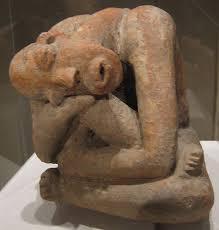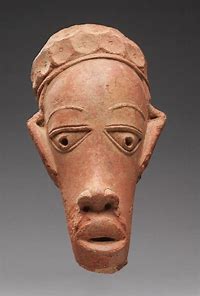Pfizer vaccine linked to Bell’s palsy after man suffers facial paralysis












Pfizer vaccine linked to Bell’s palsy after man suffers facial paralysis
The Pfizer Covid jab has been linked to Bell's palsy after a 61-year-old British man suffered facial paralysis after each dose of the vaccine.
In an article in the journal BMJ Case Reports, Dr Abigail Burrows, of Royal Surrey County Hospital, described how the man experienced paralysis to the right side of his face five hours after the first jab.
He attended the emergency department after he was unable to close his left eye properly or move the left side of his forehead and was given a course of steroids. Six weeks later, he suffered paralysis to the left side of his face two days after his second dose, causing him to dribble and have difficulty swallowing.
Although the condition cleared up after a further course of steroids, Dr Burrows advised medics to be on the lookout for the condition in patients who have recently received the jab.
"The occurrence of the episodes immediately after each vaccine dose strongly suggests that the Bell's palsy was attributed to the Pfizer-BioNTech vaccine, although a causal relationship cannot be established," said Dr Burrows.
Bell's palsy is facial paralysis and tremors from an unknown cause, and several episodes were reported in clinical trials of the vaccine. Although most cases are not serious, the symptoms can cause significant temporary disability, affecting facial expression and the ability to eat and drink.
Yellow Card data collected by the Medicines and Healthcare Products Regulatory Agency has also recorded 313 cases of Bell's palsy to date that have been linked to the Pfizer jab, as well as 250 cases of facial paralysis.
The agency said the current rate of paralysis after the vaccine is no different from the background rate of what would be expected in such a large vaccination population. However, it is continuing to monitor the situation.
In phase three trials, four cases of facial palsy of unknown cause were reported in volunteers who received the Pfizer-BioNTech mRNA vaccine compared with none in those who received the placebo vaccine, and three cases were reported in volunteers who received the Moderna mRNA vaccine compared with one in the placebo group.
Three cases of facial nerve palsy were also reported in volunteers who received the Oxford/AstraZeneca vaccine during clinical trials, but there were also three cases in the placebo arm.
In 2004, an influenza vaccine was shown to significantly increase the risk of Bell's palsy and was discontinued.
Reference: The Telegraph: Sarah Knapton
DR ELLIE CANNON: Cramp in my calf is spreading - I blame statins










DR ELLIE CANNON: Cramp in my calf is spreading - I blame statins
For the past five months I've been getting cramp in a calf. Recently it's been a little higher, just down from behind my knee.
Could it be due to the statins I've been taking for years?
A third of people over the age of 60 regularly suffer from cramps.
They can be caused by dehydration, certain exercises, liver disease and drinking too much alcohol.
Cramps may also be a sign of an underactive thyroid gland, and, yes, they can be a side effect of certain medicines.
People on statins often report muscle aches and pains, which can start even after taking the tablets without any problems for years.
The simple way to find out if statins are to blame is to stop taking them for at least four weeks – having first spoken to your GP.
If that helps, the answer is clear and a different tablet to lower cholesterol can be used.
Or the doctor, having reviewed the case, may consider that these drugs are no longer necessary.
Twenty years ago we prescribed statins to anyone with high cholesterol.
Now we are more considered in our approach, taking into account family history, lifestyle factors such as smoking and diet, age, weight and other illnesses, including diabetes.
So a discussion with the GP would always be worthwhile.
Regular exercises can help to reduce cramps and even prevent them happening at all.
If you Google 'NHS calf cramp exercises', you should be able to find some simple options.
After a nasty bout of shingles last year I've been suffering ongoing pain where the rash was – called post-herpetic neuralgia – and have been told the virus also caused a tear in my cornea.
The vision in my right eye is like looking through a fog all the time, which is upsetting as I have a driving job and I now rely on my good left eye. Might a cornea transplant help me?
Shingles is a viral infection that affects up to a third of us. For most people it causes a bout of intensely sore and painful lesions with no long-term problems.
Reference: Dr Ellie Cannon for The Mail on Sunday
Double jabbed: How common is it to test positive after having both vaccines?











Double jabbed: How common is it to test positive after having both vaccines?
Health secretary Sajid Javid announced on Saturday he had contracted Covid-19, despite having both doses of a vaccine.
Mr Javid said his symptoms were “mild”, but he feels “groggy” in a video announcing he would be self isolating.
But how likely is it that someone who has had both their jabs can be infected with coronavirus?
Studies have shown that the vaccines are highly effective, but there have been reports that a small percentage of fully-vaccinated people will still get Covid. These are called “vaccine breakthrough cases”.
But data shows that they are far less likely to get so sick that they require hospital treatment, or go on to die.
It’s also possible that people contract the virus just before or after they receive their jab before immunity is built up.
It typically takes a fortnight for the body to boost protection, and this is the reason why a minimum of two weeks has to pass after the second jab is administered before a “vaccine passport” is issued.
A Public Health England (PHE) report published on Thursday states that the chances of symptomatic disease and passing the virus to others is drastically reduced after having both jabs – but that infection is still possible.
Uninfected people cannot transmit the virus, so transmission rates are reduced as long as infection rates are reduced. However, the virus can be passed on if the infected person is infected but asymptomatic.
Two doses of vaccines are between 70 to 90 per cent effective against infection, depending on the type of vaccine administered, according to the report.
Two jabs of the Pfizer vaccine reduces symptomatic disease by between 85 to 95 per cent, hospitalisation by 90 to 99 per cent, death by 95 to 99 per cent, and infection by 70 to 90 per cent.
Two jabs of the Oxford/AstraZeneca vaccine reduced symptomatic disease by between 70 to 85 per cent, hospitalisation by 80 to 99 per cent, death by 75 to 99 per cent, and infection by 65 to 90 per cent.
There is yet no data as to the extent to which two jabs prevents the transmission of the virus, but there is some data showing that just one jab prevents passing it on by between 35 to 50 per cent – with the Pfizer jab showing to be more effective than the Oxford/AstraZeneca vaccine.
These figures relate to a period when the Alpha variant – also known as B.1.1.7 or the “UK variant” – had dominated in the UK.
Only two out of 417 people who received their second dose of the Pfizer vaccine or the Moderna vaccine were found to have contracted Covid in a study published in June in the New England Journal of Medicine.
The study cohort were employees of Rockefeller University that had their jabs at least two weeks before they were tested for the virus between 21 January and 17 March earlier this year.
PCR tests showed that the two women – aged 51 and 65, with no risk factors for severe Covid – had been infected by Covid variants. Their symptoms included a sore throat, congestion, headache, loss of sense of smell, and fatigue – which resolved within a week for both women.
Mr Javid said he had taken a lateral flow test (LFT) after feeling “a bit groggy” on Friday evening, and it showed he tested positive.
He said: “I’m grateful that I’ve had two jabs of the vaccine and so far my symptoms are very mild.”
Mr Javid, who on Saturday evening announced the results of the lateral flow test had been confirmed via a PCR test, said he was self-isolating at home with his family in a video posted to his Twitter account.
He also urged those who hadn’t received a vaccine to “get out there and get them as soon as you can”.
Gavi, the global vaccine alliance organisation, states that LFTs – which return on-the-spot results within 30 minutes – are less accurate that PCR tests that are sent to a lab and take about two to three days to return a result.
It’s possible for an LFT to return a false negative result but it’s “highly unlikely” for it to show a false positive result, according to Gavi.
Health experts warn of a rise in the vomiting bug norovirus












Health experts warn of a rise in the vomiting bug norovirus
The winter vomiting bug is making a comeback in the summer as Covid restrictions begin to ease, public health experts have warned.
Norovirus, which causes vomiting and diarrhoea, is highly infectious, with outbreaks normally happening in winter.
However, cases of the bug are on the increase during the summer with Public Health England (PHE) reporting 154 norovirus outbreaks in the five weeks leading to 5 July.
This is nearly triple the five-year average for the same period (53), with PHE warning cases may go even higher following Freedom Day.
Academics have described the phenomenon as a possible sign of 'immunity debt', where diseases the population previously had some resistance to are returning at greater strength post-lockdown.
Others have called for a delay to lifting the Covid restrictions on Monday, arguing a norovirus outbreak could ravage the NHS through bed closures and staff sickness while it is still grappling with the impact of coronavirus.
For now, the most recent norovirus outbreaks have been concentrated in nursery and childcare facilities with a few others reported in care homes and a very small number in hospitals.
While the PHE data shows norovirus cases have been steadily increasing since the start of April, they accelerated in the last full week of May.
PHE's national infection service deputy director Professor Saheer Gharbia said Covid restrictions had given norovirus a limited ability to spread between people, a trend now being reversed as the UK beings to re-open.
She said: 'Norovirus, commonly known as the winter vomiting bug, has been at lower levels than normal throughout the pandemic with less opportunity to spread between people in the community.
'But as restrictions have eased we have seen an increase in cases across all age groups.'
Professor Gharbia said symptoms of norovirus infection include the sudden onset of nausea, projectile vomiting and diarrhoea, but can also include a high temperature, abdominal pain and aching limbs.
Those experiencing norovirus symptoms should stay at home, and children infected with the bug should not be sent to school or nursery until 48-hours after symptoms have cleared to avoid passing the virus on to others.
'As with Covid, hand washing is really important to help stop the spread of this bug, but remember, unlike for Covid alcohol gels do not kill off norovirus so soap and water is best,' Professor Gharbia added.
University of East Anglia's Professor Paul Hunter, an infectious disease expert, said norovirus, like many other pathogens, was almost non-existent when the human-to-human chain of infection was broken during the first lockdown.
'Like many of the respiratory viruses it pretty much disappeared within days of the implementation of the first lockdown,' he said.
Professor Hunter said the UK's current norovirus outbreak mirrors that of Australia which experienced a similar rise in cases among children when they started to ease restrictions.
'The increase of cases of norovirus in children almost certainly reflects the reduced immunity to this infection as a result of not being exposed to infection during the past 18 months,' he said.
'We have already started to see cases rising for some of the other respiratory viruses and this reminds us that as we come out of lockdown we are likely to start seeing many other infections rising that may cause problems for public health and the NHS.'
Professor Hunter said some doctors were describing this phenomenon as 'immunity debt' whereby cases of other infectious diseases increase more than usual once protective measures against Covid are removed.
'As yet we do not know how much of an additional burden this will cause for public health in the UK but we need to monitor this,' he added.
Dr Nick Scriven, the immediate past president for the Society of Acute Medicine warned that a cases of the norovirus had reached 'pre-pandemic' levels.
'We are now just days away from the lifting of the remaining restrictions in England and our NHS is under great strain,' he said.
'Considering the impact this has when it makes its way into hospitals – bed closures, infecting seriously unwell people and staff absence – it is frankly very worrying.'
Dr Scriven said it made the Government's plan of lifting Covid restrictions in England on Monday, so called Freedom Day, questionable.
'At the moment, clinicians across the country are asking themselves exactly what the Government is thinking given the fact healthcare is being ravaged,' he said.
In December 2019, prior to the Covid pandemic, the NHS in England was put under incredible strain by a norovirus outbreak which forced the closure of 1,100 beds.
PHE data at the time that the number of positive norovirus cases in the weeks preceding the mass bed closures, November 11 to 28, was 28 per cent higher than the five-year average.
Reference: John Ely For Mailonline
Articles - Most Read
- Home
- LIVER DIS-EASE AND GALL BLADDER DIS-EASE
- Contacts
- African Wholistics - Medicines, Machines and Ignorance
- African Wholistics -The Overlooked Revolution
- African Holistics - Seduced by Ignorance and Research
- The Children of the Sun-3
- Kidney Stones-African Holistic Health
- The Serpent and the RainBow-The Jaguar - 2
- PART ONE: DIS-EASE TREATMENT AND HEALTH-3
- 'Tortured' and shackled pupils freed from Nigerian Islamic school
- King Leopold's Ghost - Introduction
- PART ONE: DIS-EASE TREATMENT AND HEALTH-4
- PART ONE: DIS-EASE TREATMENT AND HEALTH-2
- PART ONE: DIS-EASE TREATMENT AND HEALTH-5
- African Wholistics - Medicine
- Menopause
- The Black Pharaohs Nubian Pharaohs of Ancient Egypt
- The Mystery System
- PART ONE: DIS-EASE TREATMENT AND HEALTH-6
Who's On Line?
We have 91 guests and no members online
Ad Agency Remote
Articles - Latest
- The Male G Spot Is Real—and It's the Secret to an Unbelievable Orgasm
- Herbs for Parasitic Infections
- Vaginal Care - From Pubes to Lubes: 8 Ways to Keep Your Vagina Happy
- 5 Negative Side Effects Of Anal Sex
- Your Herbs and Spices Might Contain Arsenic, Cadmium, and Lead
- Struggling COVID-19 Vaccines From AstraZeneca, BioNTech/Pfizer, Moderna Cut Incidence Of Arterial Thromboses That Cause Heart Attacks, Strokes, British Study Shows
- Cartilage comfort - Natural Solutions
- Stop Overthinking Now: 18 Ways to Control Your Mind Again
- Groundbreaking method profiles gene activity in the living brain
- Top 5 health benefits of quinoa
- Chromolaena odorata - Jackanna Bush
- Quickly Drain You Lymph System Using Theses Simple Techniques to Boost Immunity and Remove Toxins
- Doctors from Nigeria 'facing exploitation' in UK
- Amaranth, callaloo, bayam, chauli
- 9 Impressive Benefits of Horsetail
- Collagen The Age-Defying Secret Of The Stars + Popular Products in 2025
- Sarcopenia With Aging
- How to Travel as a Senior (20 Simple Tips)
- Everything you need to know about mangosteen





